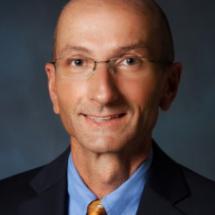Charles F. Owens is an Associate Clinical Professor for Georgia Southern University’s Jiann-Ping Hsu College of Public Health (JPHCOPH), and the Director of the Center for Public Health Practice & Research. As the Director for the JPHCOPH Center for Public Health Practice & Research, he facilitates the integration of JPHCOPH academic resources into local, state, and national fields for application in communities and areas of research. With professional experience holding a variety of health care leadership positions over the past 26 years, Mr. Owens has worked with health care organizations across the entire continuum of care. Before joining Georgia Southern University, he served as the Executive Director of the Georgia Department of Community Health’s State Office of Rural Health and Primary Care Office, providing oversight to various programs focusing on improving the health care delivery system and health of Georgians in underserved communities. He has served on several state and federal government committees committed to improving healthcare and health delivery systems, including Governor Nathan Deal’s Rural Hospital Stabilization Committee and the 2012-2013 Human Resources and Services Administration (HRSA) Negotiated Rulemaking Committee for Designation of Medically Underserved Populations and Health Professional Shortage Areas. He also serves on the Board of the Georgia Rural Health Association, the Georgia Public Health Association and the Georgia Primary Care Association Internal Review Board.
Mr. Owens obtained his Master’s in Science majoring in Accounting from Georgia Southwestern College in 1992. He previously obtained his Bachelor’s of Science majoring in Marketing from Valdosta State College in 1990.
